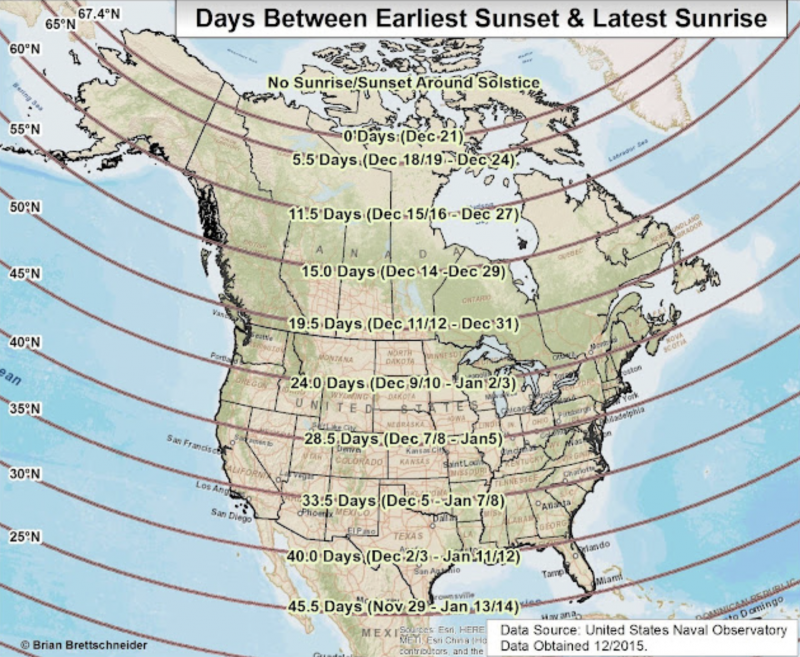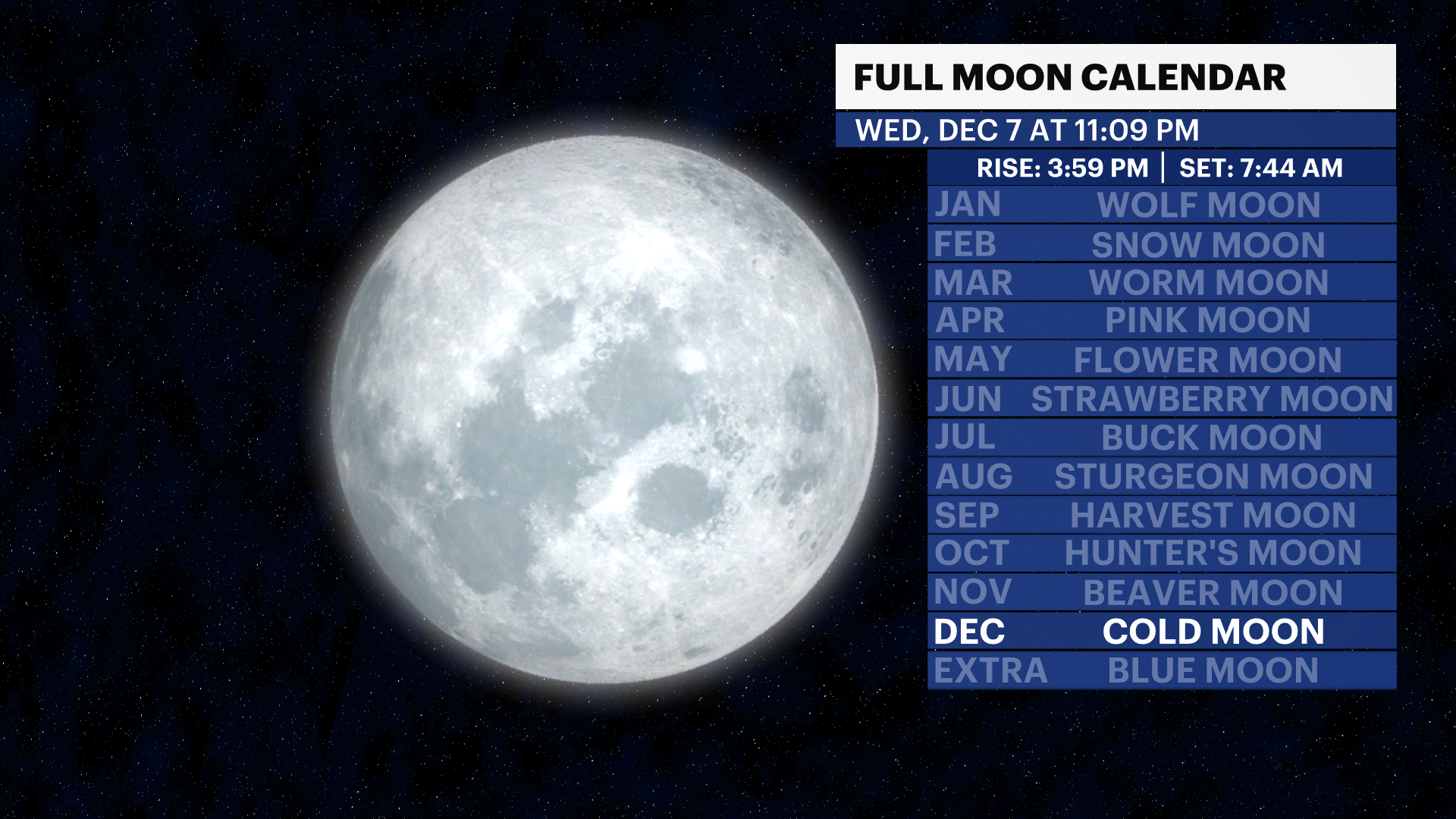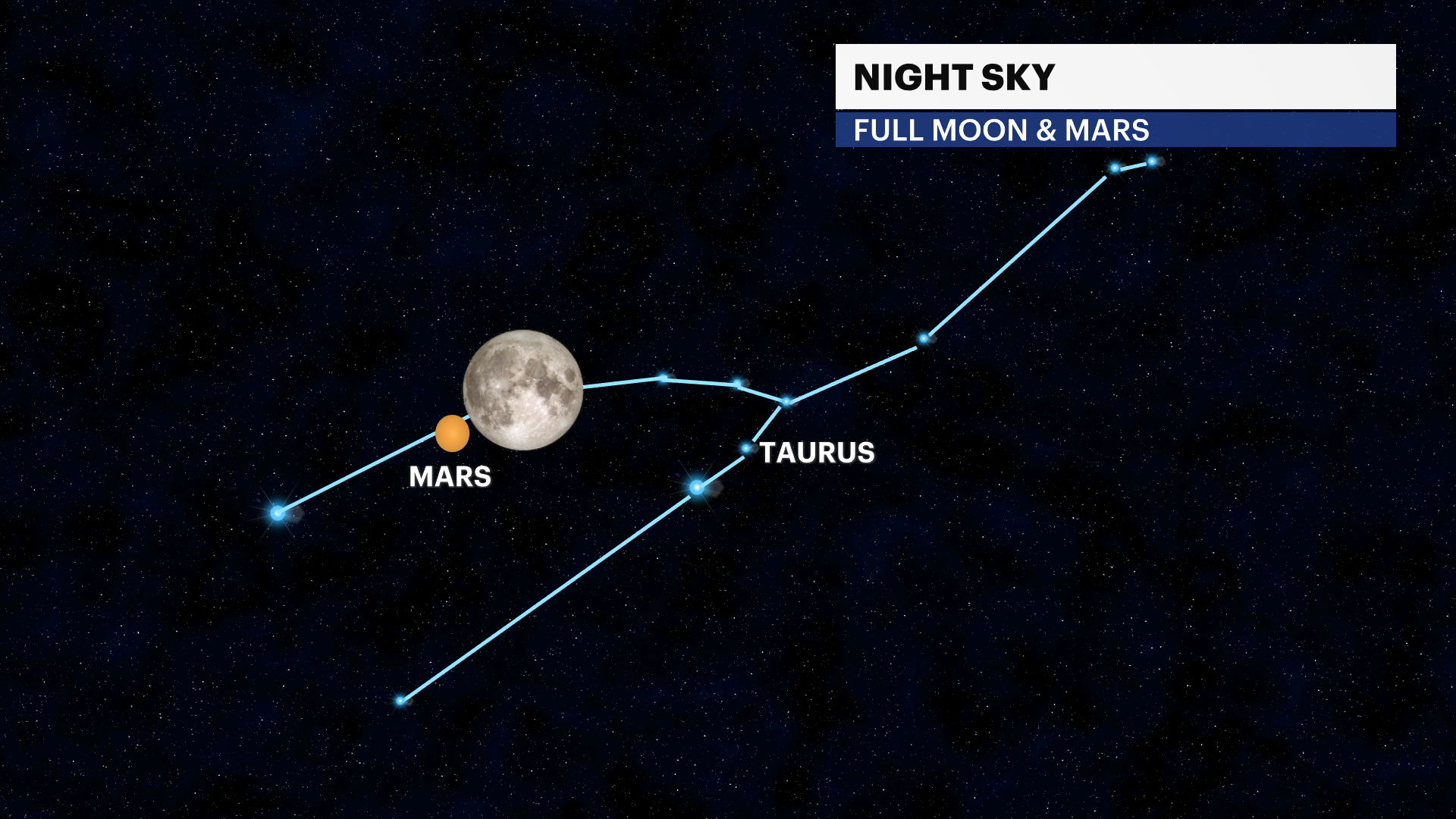More Stories
There’s a lot going on in
the sky this week. For starters, we see the earliest time the sun will set.
For those of us that
dread to see such early sunsets the last several weeks – no worries, it’s going
to start changing soon. Did you know that the earliest sunset
actually occurs before the winter solstice?
How can this be? It all has
to do with the way we measure time and the sun. Our days aren’t always exactly 24
hours long, but our clocks are. There is a discrepancy on how we mark "noon
time" on our clocks vs. when the sun reaches the highest point in the sky. This
varies slightly during the year due to our elliptical orbit and tilt. The timing
also changes with degrees of latitude.
The winter solstice is
still the "shortest day" of the year, or the day with the least amount of
daylight. The
dates for the earliest sunset times vary with latitude. The
southern states have already seen their earliest sunset and now it’s our turn
this week.

The latest sunrise for
our area will occur on Jan. 7. So while the amount of daylight will
still shorten through the solstice, it will appear as if the day is growing
longer again.
Next up on Dec. 7 is the full moon! December’s full moon is known as the Cold Moon. On this same
night, Mars will also be in be in opposition. For some across the U.S., the full moon
will occult, or pass right in front of Mars. Unfortunately, the tri-state area is
just out of reach to see this. This doesn’t mean it won’t be a great
time to view the orange planet. Opposition is the best time to view Mars, as it
will be closest to Earth, and at it’s brightest magnitude (-1.9), while it’s
sits opposite the Sun. Mars and the moon will be visible all
night. They will appear to be very close to each other and almost touch. Their
closest approach will be just before 11 p.m.


Like always – all we need
is great weather. There’s a chance we may not see everything perfectly with clouds
and showers this week. For more on the local forecast, be
sure to stay up to date with your News 12 Storm Watch Team meteorologist.
More from News 12
1:46

NJ residents find ways to enjoy the snow following overnight winter storm
1:49

Storm to bring heavy rain & strong winds across the tri-state
1:28

Steady snowfall accumulates in New Jersey
2:33

Sadly, we will miss the peak of the Geminid meteor shower this year, but we'll get snow instead!

How to watch the last supermoon of the year tonight
2:12
